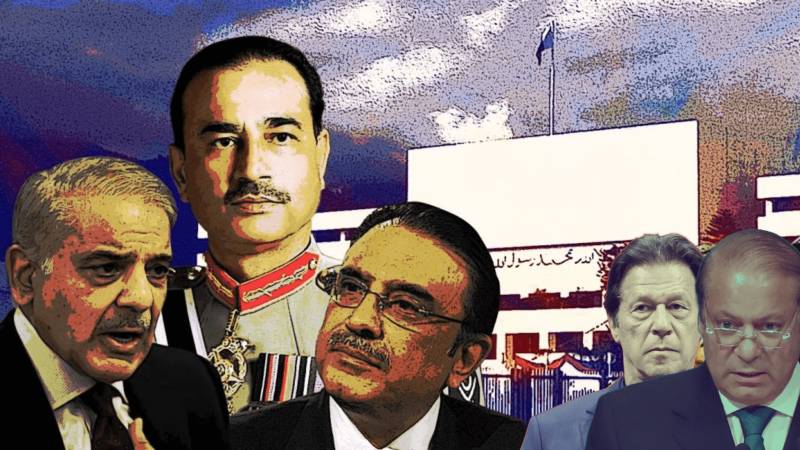
Pakistan has been suffering from one political crisis after another since Partition in 1947, partly because of the lack of political leadership, and partly because of the pliant and conniving nature of our politicians. The political class of Pakistan has failed the country in bringing democratic reforms, and is always ready to come to power via backdoors whose keys have always been in the hands of the military establishment. Due to this reason, the country has been mired in political instability, suffering from economic meltdown and political polarisation.
From 2018 onwards, Pakistan has been operating under hybrid political systems. Though it apparently felt that the political leadership was sitting in the driving seat, it is not always the case for the fact that it was the establishment that was pulling the strings from behind the scenes. Owing to the expanding role of the establishment, it would not be wrong to say that the current government is toothless because the establishment has assumed a far bigger role than it had during the Imran Khan-led government. From the economy to politics and even the sport of cricket, the establishment controls all key departments.
Six judges of the IHC exposed the Pakistani military establishment for paralysing the judiciary of Pakistan
More importantly, the judiciary has opined that the establishment has been intervening in its work. To stop this intervention, six judges of the Islamabad High Court (IHC) have written a letter to the Supreme Judicial Council to take necessary action. By writing this letter, the IHC has exposed the establishment of Pakistan for paralysing the judiciary of Pakistan. It appears that the establishment has been relentless in its pursuit of nipping everything in the bud if its will does not prevail, be it the judiciary or any dissenting voice.
In the Senate too, the establishment has brought its own people to facilitate necessary legislation at times when incumbent senators refuse to do its bidding. It seems that the establishment has comprehensively established its position all over the place, be it parliament or any other departments of the government. Moreover, it has been reported that there are people in this government, especially Mohsin Naqvi, who have been operating independently of the government just because they have the support of the powers that be.
As far as the 'independent' media and its role is concerned, it has failed to bring the real facts to the arena of mainstream public discourse. It has been playing a negative role, as the whole media industry keeps harping on whatever the establishment orders it to say. Rather than questioning the role of the government, the media has been constantly reprimanding the opposition, especially Imran Khan, who has been adamant on his anti-establishment political rhetoric. Even today, despite being incarcerated, Khan has successfully put the establishment on the back foot, albeit most often with his hyperbolic statements.
Redemption from the clutches of the establishment lies in reconciliation between all political forces towards a working relationship that focuses on preventing any unconstitutional or undemocratic meddling
Since the vote of no confidence that removed Imran Khan's government in April 2022, the country has been lurching from one crisis to another. There is no end in sight to the political crisis in the country, as politicians continue to play into the hands of the establishment. Political opportunism has taken an immense toll on Pakistan, yet our political leadership fails to reconcile their differences. Until there is a settlement between all political forces, no major change in the political and economic situation of Pakistan will occur.
Moreover, there is no way forward for Pakistan if its political leadership – be it Nawaz Sharif, Imran Khan or Asif Zardari – remain the way they have chosen for themselves, which is, to come to power on the back of the establishment. Redemption from the clutches of the establishment lies in resolving the outstanding political issues with consensus and agreement, so that a working relationship could be established.
In conclusion, to save the media's independence, to revive democracy and to end political and economic instability, Pakistan needs its political leadership to assume a greater role, which will happen only when there is political reconciliation between all of them without any role of the establishment. If this is done, the establishment might refrain from meddling in politics. Otherwise the political crisis will perpetuate one way or another, resulting in a weak polity and economy.

